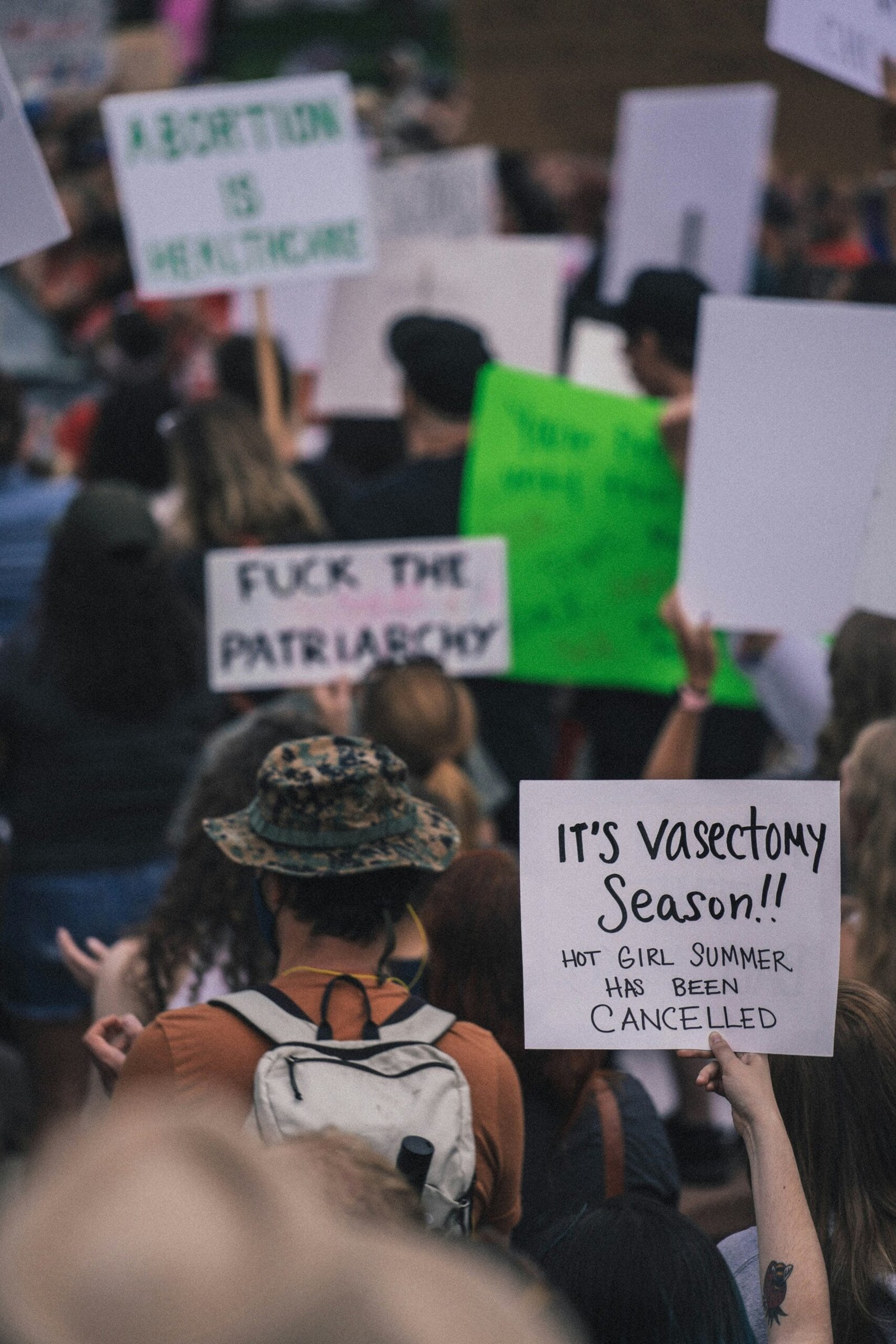
Introduction to the Cato Institute
The Cato Institute, founded in 1977, stands as a prominent think tank in the United States, dedicated to the principles of libertarianism. Established by Edward H. Crane and other advocates for limited government, the Cato Institute has significantly influenced public policy debates over decades. The organization’s mission is to promote individual liberty, free markets, and peace, striving to ensure that the principles of liberty are woven into the fabric of national discussions.
Central to the Cato Institute’s philosophy is a commitment to a limited government that respects personal freedom and encourages personal responsibility. The organization maintains that government intervention often leads to inefficiency and restriction of freedoms, advocating instead for policies that lean toward privatization, deregulation, and open markets. Its scholars and researchers continuously challenge conventional wisdom by providing analytical perspectives backed by empirical evidence, thereby fostering informed public discourse.
The Cato Institute operates on core principles that emphasize the importance of individual rights. These principles include advocacy for civil liberties, a non-interventionist foreign policy, and a judicial system that protects personal freedoms from infringement. By offering policy proposals that reflect these ideals, the institute seeks to not only critique prevailing political structures but also to present innovative alternatives that align with libertarian values.
Over the years, the Cato Institute has carved out a significant niche in the landscape of public policy analysis, positioning itself as a leading voice among think tanks. Through rigorous research and public outreach, it champions a vision where individual rights are upheld, market mechanisms are optimized, and governmental overreach is curtailed. This foundational vision is what sets the stage for examining the specific groundbreaking policy proposals that the Cato Institute has introduced to challenge traditional thinking.
Understanding Libertarian Policy Principles
Libertarian policy principles are rooted in the belief that individual freedom is paramount. At the core of these principles lies the assertion that each person possesses the inherent right to make choices regarding their own lives, as long as these choices do not infringe on the rights of others. This focus on personal liberty translates into a strong commitment to minimizing government intervention in both economic and social spheres. Advocates of libertarianism argue that the government should limit its role primarily to the protection of individual rights and the enforcement of contracts, rather than becoming involved in aspects of personal or economic decision-making.
Personal responsibility is another foundational pillar of libertarian thought. This principle emphasizes that individuals are accountable for their actions, encouraging them to take ownership of their decisions, whether those relate to financial matters, healthcare, or education. By promoting self-reliance, libertarians argue that society can foster innovation and creativity, as individuals are more likely to pursue their interests and aspirations without the burden of overly restrictive regulations. This approach also posits that when people bear the consequences of their decisions, they are more likely to make informed choices that benefit both themselves and the community.
Furthermore, the philosophical background of libertarianism can be traced to Enlightenment thinkers such as John Locke and Adam Smith, who championed the ideas of individual rights and free markets. The integration of these classic theories into modern discourse helps to provide a robust framework for understanding how libertarian principles influence contemporary policy proposals. As social and economic challenges become increasingly complex, libertarian thought continues to challenge traditional viewpoints by advocating for solutions that prioritize freedom and reduce governmental control. Such proposals aim to reshape the landscape of public policy while reinforcing the belief that a society that values personal liberty is ultimately a more prosperous one.
The Importance of Free Market Solutions
The notion of free market solutions rests on the belief that minimal government intervention allows for more efficient and innovative outcomes in various sectors. Free market economics champions the idea that when businesses and consumers operate in an open marketplace, the forces of supply and demand naturally govern prices and resource distribution. This self-regulating nature of markets encourages innovation as companies strive to stay competitive, fostering an environment where new ideas and technologies can flourish.
One of the primary benefits of embracing free market policies is increased consumer choice. In a system where multiple suppliers exist, consumers can select from a wider array of products and services tailored to their preferences. This notion stands in contrast to traditional government interventions, which often limit options through regulation or state monopolies. For instance, deregulation in the telecommunications industry led to increased competition, resulting in lower prices and improved services for consumers.
Moreover, the efficiency that stems from free market solutions cannot be overlooked. When businesses operate with the goal of profit maximization, inefficiencies are weeded out, and resources are allocated optimally. Take, for instance, the example of energy markets: regions that have embraced market-driven reforms have seen both a decrease in prices and a surge in renewable energy options, demonstrating how free enterprise can respond swiftly to consumer demands and preferences.
Real-world applications of free market principles provide compelling evidence for their efficacy. Nations that have embraced market-oriented reforms, such as those in Eastern Europe following the fall of communism, have experienced significant economic growth and improvements in living standards. By allowing the market to dictate outcomes, these countries benefited from innovation, entrepreneurship, and increased investment, ultimately enhancing their societal well-being. Thus, free market solutions represent a rational alternative to traditional approaches, emphasizing the paramount importance of choice, efficiency, and innovation in driving progress.
Proposal 1: Streamlining Regulations
The Cato Institute’s first notable policy proposal focuses on the essential task of streamlining regulations, asserting that excessive federal regulations hamper economic growth and innovation. The overarching belief is that a less restrictive regulatory environment can energize businesses, foster entrepreneurship, and ultimately lead to enhanced economic performance. A significant number of small and large enterprises in various industries contend that cumbersome regulations often create barriers to entry, excessive compliance costs, and divert valuable resources that could otherwise be allocated to development and innovation.
When regulations become too intricate and voluminous, businesses may find themselves spending a disproportionate amount of time and money navigating bureaucratic requirements instead of focusing on their core functions. This atmosphere can stifle competition, drive companies to relocate to less regulated environments, and reduce the overall effectiveness of the market. Consequently, consumers may face higher prices and limited choices as businesses curtail their offerings or withdraw from certain markets altogether due to fear of regulatory repercussions.
Proponents of deregulation argue that by reducing regulatory burdens, the government can empower businesses to operate more efficiently and competitively. Streamlining regulations could lead to a reallocation of resources that fosters innovation and product development, stimulating economic activity. Moreover, simplifying the regulatory landscape can attract investment both domestically and from abroad, as prospective investors often seek predictable and manageable conditions for their ventures.
Ultimately, the Cato Institute’s proposal to streamline regulations advocates for a reevaluation of the existing federal framework, emphasizing that a more efficient regulatory system can yield substantial benefits for both businesses and consumers. By fostering a more vibrant economic environment through deregulation, the initiative seeks to unlock the significant economic potential that lies within a less encumbered marketplace.
Proposal 2: Reforming Social Security
The Social Security system, established in the 1930s, has come under increasing scrutiny due to its growing financial burdens and inefficiencies. Critics argue that the current model, which forcibly collects payroll taxes to fund benefits for retirees and disabled individuals, is unsustainable in the face of an aging population and slow economic growth. Detractors contend that this approach limits personal financial freedom and places undue reliance on government programs, ultimately undermining individual financial independence.
The Cato Institute’s proposal for reforming Social Security presents a compelling alternative that seeks to address these criticisms. The main thrust of this reform is the establishment of personal savings accounts, allowing individuals to have greater control over their retirement planning. Under this libertarian framework, workers would be permitted to redirect a portion of their Social Security taxes into accounts they personally manage, fostering a sense of ownership and responsibility. This proposal aims to reduce the long-term government liabilities associated with Social Security while encouraging individuals to invest in their own future.
By transitioning to personal accounts, proponents argue that individuals would reap the benefits of compound interest and tailored investment strategies, ultimately leading to enhanced retirement outcomes. This shift emphasizes the role of personal initiative and the potential for higher returns compared to the stagnant benefits distributed by the traditional Social Security system. Critics of the current framework contend that a move towards personal savings accounts would also reduce the overall tax burden on younger workers, paving the way for increased financial flexibility.
This initiative represents a fundamental departure from traditional social safety nets, advocating for a system that empowers individuals rather than entrusting their financial security to the government. Consequently, Cato’s proposal for Social Security reform stands as a significant attempt to realign social services with the principles of personal freedom and responsibility.
Proposal 4: Education Vouchers and School Choice
The proposal for education vouchers is positioned at the forefront of discussions on reforming the American education system. This policy initiative aims to break away from traditional public schooling by providing parents with financial resources, in the form of vouchers, that can be used to enroll their children in private educational institutions. This transformative approach underlines the significance of parental choice and the empowerment of families to select environments that best suit their children’s educational needs.
Education vouchers serve as a catalyst for school choice, creating a competitive landscape among schools. This competition is argued to inspire educational institutions to improve their offerings and tailor their programs to meet diverse student demands. In a conventional public school system, where funding is often tied to enrollment, there may be less incentive for schools to innovate or excel. Vouchers aim to rectify this by redirecting funds directly to the student’s choice of school, thereby fostering an ecosystem where educational quality is paramount.
Furthermore, the introduction of education vouchers aligns seamlessly with libertarian principles, emphasizing individual liberty and minimizing government intervention. By allowing parents to make decisions about where their children are educated, this policy proposal champions the idea that families are best positioned to make choices that enhance their children’s future prospects. Research and case studies from regions that have implemented similar voucher systems indicate potential improvements in student performance and satisfaction, demonstrating the positive impacts of increased choice in education.
In summary, education vouchers and school choice represent a pioneering departure from traditional educational paradigms, pushing for enhanced competition and yielding better outcomes for students. This proposal exemplifies a proactive strategy to reform education that prioritizes family empowerment and academic excellence.
Proposal 5: Criminal Justice Reform
The fifth groundbreaking proposal from the Cato Institute focuses on comprehensive criminal justice reform aimed at addressing the pressing issues of mass incarceration, the punitive nature of existing policies, and the broader implications for individual rights. The proposal emphasizes a shift from traditional punitive measures to a model centered on rehabilitation, which aligns with the principles of libertarian thought. It critiques the existing system for its disproportionate effects on marginalized communities and its failure to facilitate successful reintegration into society for those who have committed offenses.
Central to this proposal is the acknowledgment that mass incarceration in the United States has not only been an ineffective deterrent to crime but has also caused significant societal ramifications. By advocating for a reduction in mandatory minimum sentences and the re-evaluation of non-violent offenses, the Cato Institute aims to create a justice system that prioritizes proportionality in punishment. This would not only alleviate the burden on overcrowded prison systems but also allow for the financial resources currently spent on incarceration to be redirected towards educational and rehabilitative programs.
Furthermore, the reform proposal underscores the importance of recognizing individual circumstances and the potential for personal growth and change. By promoting a framework that champions second chances, the initiative encourages the view that individuals should not be defined by their past mistakes. This belief in redemption is foundational to libertarian philosophy, which espouses the inherent value of personal autonomy and responsibility.
In summary, the Cato Institute’s policy proposal for criminal justice reform advocates for a transformative approach to how society deals with crime and punishment. By focusing on rehabilitation, reducing incarceration rates, and respecting individual rights, these proposed reforms challenge the traditional thinking that has dominated the criminal justice system for decades.
Potential Challenges and Counterarguments
The policy proposals put forward by the Cato Institute, while innovative and thought-provoking, are not without their detractors. One potential challenge arises from the critique that these policies may overlook critical social and economic implications. For instance, proponents of social safety net expansions argue that the proposals could exacerbate existing inequalities, particularly if implemented without accompanying measures to aid the disadvantaged. Critics from both ends of the political spectrum may question the feasibility of these ideas, emphasizing that the current political environment is characterized by polarization and partisanship. Implementing sweeping changes is inherently difficult, especially when consensus is necessary for legislative action.
Additionally, there are concerns regarding the fiscal implications of some Cato Institute proposals. The emphasis on reduced government intervention and taxation could lead to deficits in essential public services, especially in education, healthcare, and infrastructure. Opponents may argue that a lack of sufficient funding in these critical areas could hinder economic growth and social equity. On the other hand, advocates for the proposed policies might counter that reducing government spending and intervention could cultivate a more dynamic economic environment, spurring entrepreneurship and innovation.
Furthermore, institutional inertia can pose significant challenges to the implementation of these proposals. Government agencies and regulatory bodies often operate within established frameworks that resist change. Reforming these systems may require not only legislative action but also substantial shifts in public opinion and agency culture. Proponents of Cato’s proposals can respond to these critiques by emphasizing the long-term benefits of their approach, including enhanced efficiency and individual freedom, which they argue are crucial to overcoming the bureaucratic barriers underpinning contemporary governance.
Conclusion: The Future of Libertarian Policies
The policy proposals put forth by the Cato Institute represent a significant shift in the discourse surrounding governance and social dynamics in the United States. By challenging traditional government interventions, these proposals foster a renewed conversation about the role of individual freedoms in a democratic society. As citizens become increasingly aware of the limitations and inefficiencies of existing policies, the advocacy for more libertarian policies has the potential to reshape the future landscape of American governance.
The push for limited government intervention highlights the belief that individuals, when granted greater autonomy, are better equipped to make decisions that affect their lives. This perspective not only empowers citizens but also promotes accountability within the government. By adopting the Cato Institute’s proposals, society could see a move towards a more decentralized approach to governance. Such a transition would likely lead to increased personal responsibility and innovation, as individuals and communities are trusted to address their needs without excessive bureaucratic oversight.
Moreover, the recommendations encourage a critical examination of the long-standing assumptions that guide economic and social policies. In a rapidly evolving world, traditional thinking often stifles progress; however, by embracing alternatives that prioritize liberty, society can pave the way for more equitable solutions. An environment where individual choice and competition thrive plays a crucial role in fostering creativity and adaptability, ensuring that governance evolves alongside the challenges faced by contemporary society.
As the dialogue around libertarian policies continues, it is imperative for advocates to remain steadfast in promoting these ideas. The road to significant policy reforms may be challenging, but the potential benefits of adopting such frameworks hold promise for a more just and prosperous future. By encouraging a culture of critical thinking and open debate, citizens can work towards a governance model that truly reflects the principles of freedom and limited interference.
- Supreme Court Blocks Some Deportations, Crimea Future Mulled
- US and Iran begin second round of talks to end nuclear stand-off
- Musk Revives Plan to Visit India After Talking With Modi
- SCOTUS Blocks Deportations of Venezuelans Held in Texas, US Is Open to Recognizing Crimea
- HDFC Bank Posts Profit Growth Higher Than Analyst Expectations




